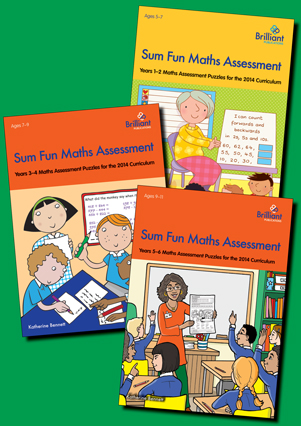Assessment made simple

What is the most efficient and effective way of assessing learning in maths?
Where assessing the progress of children in maths is a separate activity from the day to day teaching and learning, then this assessment adds to the workload of the teacher, and takes up time that could be used more productively in further teaching and learning.
However, where the learning and revision is directly related to assessment then both the teacher’s workload and the time used up in recording progress, is greatly reduced.
Further, where the assessment itself can be made an enjoyable task for the children, it removes any worries among pupils who might be prone to anxiety at the merest hint of taking a test.
Thus, the most obvious answer to the question above comes from having a series of reproducible worksheets which are linked directly to year group objectives. If each worksheet links to a particular skill which is within the curriculum it is then easy to know exactly where each child has progressed to, within the curriculum.
What’s more, where the worksheets can be used as independent tasks, children at different levels can both progress and be tested, according to their ability in maths at the time.
And to go even further, where the worksheets also contain self-correcting activities, the children feel increasingly in control of their own learning.
So, while the children are engaging in learning directly related to their level, they are providing the evidence of their own learning, and applying those skills to extension activities.
The questions presented in the Sum Fun Maths Assessment series provide this learning and evidence gathering scenario for a class. The answer to certain mathematical problems generates a code, the children then use the code to find the answers to jokes and riddles – which adds to their motivation. Jokes such as: ‘What would happen if all the ducks in the world jumped up and down at the same time?’ (an earth quack).
The work ranges from number and place values to decimals and percentages. All the details can be found on our website along with three full riddle examples. The examples can be downloaded to try out with your pupils, without any cost. We are sure your pupils would love to find out ‘How teddy bears start a race’ or ‘Where sheep go on holiday’ and their teachers’ can assess their maths skills development as they do.
